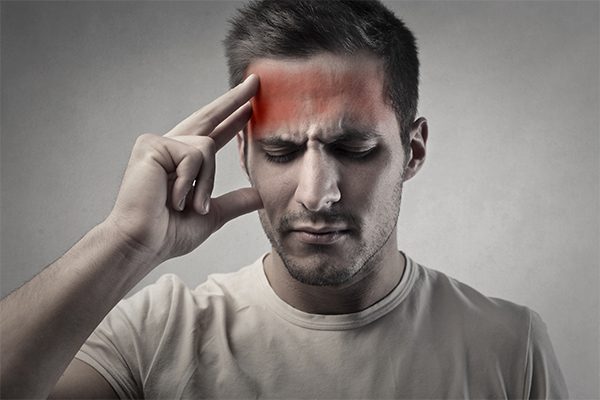Types of Migraine and Homeopathy Treatment

- Written By ....Drcare Team
- Content reviewed by Dr AM Reddy
Migraine Headache
A migraine is a severe headache. This neurological condition can create worsening symptoms numbing sensations that can keep you restricted to bed for a few days! Pain, weariness, nausea, visual problems, numbness or tingling, irritation, temporary loss of eyesight, trouble speaking, and other symptoms might be caused by movement, light, sound, and other causes. To know more about types of migraine and homeopathy treatment have a look at the space below.
What exactly is a migraine? How does it feel to have a migraine?
A migraine is touted to be a frequent neurological disorder that generates symptoms, the most prominent of which is a throbbing, spinning headache on one side of your head. Physical exertion, lights, noises, or odors are all likely to worsen your migraine. It might last for at least four hours and possibly even days. According to experts, it is a genetic disorder.

What are the different types of headaches? Which type of headache is a migraine?
There are about 150 various forms of headache, that are classified into two types:
- primary headaches
- secondary headaches
Migraine is a primary headache, which means this is not caused by some other medical condition.
- Primary headache disorders can’t be diagnosed clinically, which means there is no blood test or imaging scan to support the presence
- A secondary headache is a result of other health issues
What are the different types of migraines?
There are several types of migraines, and the same type may be referred with multiple names:
- Aura migraine (complex migraine): An aura is experienced by around 15% to 20% of those who suffer from migraine headaches
- Migraine without aura (common migraine): This form of migraine headache occurs without the prior warning given by an aura. The symptoms are similar, however that period does not occur
- Migraine without headache: This form, often known as “silent migraine” or “acephalgic migraine,” comprises the aura signs but without the headache that usually follows
- Hemiplegic migraine causes momentary paralysis (hemiplegia), as well as neurological or sensory changes across one part of the body. The headache may begin with temporary numbness, acute weakness on one side of your body, tingling, loss of feeling, dizziness, or visual changes. Sometimes it includes headache, and other times it do not
- Retinal migraine (ocular migraine): You may have short, partial, or total vision loss in one of your eyes, as well as a dull uneasiness behind the eye that may extend to the rest of your head. That eyesight loss might last a minute or months. A retinal migraine should always be referred to a healthcare physician since it might be a sign of a more serious problem
- Migraine (chronic): A migraine is considered chronic when it happens at least 15 days a month. The severity of the suffering, as well as the symptoms, might alter on a regular basis. Most individuals who suffer from chronic migraines may use headache pain relievers more than 10 to 15 days per month, which might result in frequent headaches
- Migraine with aura from the brainstem: You may have vertigo, lightheadedness, double vision, or balance problems prior to the headache with this migraine. The uneasiness in your head may extend to the back of your skull. These symptoms frequently appear quickly and are coupled with difficulty speaking, ringing in the ears, and vomiting
- Migraine status: This is an unusual and severe migraine that can continue for up to 72 hours. The headache and nausea might be excruciating. This form of migraine can be caused by certain prescriptions or treatment withdrawal
Immediate Medical Attention Is Required
A headache may necessitate prompt medical intervention in some instances. Seek medical attention right away if you are suffering any of the following symptoms in addition to your headache:
- Stiff neck
- Rash
- The worst headache you’ve ever experienced
- Vomiting
- Confusion
- Speech that is affected
- A temperature of 100.4°F (38°C) or higher is required
- Any portion of your body might be paralyzed
- Loss of vision
If your headache is less severe, keep reading to learn how to recognize the sort of headache you’re having and what you can do to relieve your symptoms.
Self-Care
There are various things you may do to assist reduce the physical and emotional issues that come with having a chronic disease such as migraines or headaches. According to the researchers, leading a balanced lifestyle that supports general health can help lessen the frequency and intensity of headaches:
- Take note of your sleeping habits: Try to keep regular sleep hours, getting ready to bed, and wake up at the usual time daily (even weekends! ). Relax before going to bed, and avoid intense activity and foods/drinks that might disrupt sleep (such as heavy meals, coffee, and alcohol)
- Take care with what you consume: Plan your meals for the same time each day, avoid skipping meals, keep a meal plan to track any items that may cause your headache, and avoid those that do (remember food is low on the list as a migraine trigger). According to a study conducted by the researchers, a plant-based diet that includes cooked vegetables such as broccoli, spinach, carrots, sweet potatoes, and summer squash, cooked or dried fruits such as berries, pears, and prunes, brown rice, and water may reduce migraine pain symptoms. Although further study is needed, ginger and turmeric have also been found to have advantages. Find out more about possible supplements and dietary triggers
- Control your tension: We understand that it is easier said than done. But even if you only do one of these things, you’ll reduce your risk: simplify your life by not taking on too many tasks at work or at home; taking 10- or 15-minute breaks when carried away; finding enjoyable daily activities, and practicing deep breathing exercises to relax. During a migraine attack or after an injection targeted at easing the headache, some people have experienced brief relief using essential oils
- Continue to move: Regular physical activity can assist in the maintenance of mental health as well as a healthy weight. The risk of migraine is assumed to rise when a person’s weight increases owing to inflammation. Being overweight or obese can raise the chance of getting chronic headaches in persons who have acute headaches
Risk Elements
Anyone can have any types of migraine, although persons with the following conditions are at a slightly increased risk:
- Depression
- Bipolar disease
- Fibromyalgia
- IBS (irritable bowel syndrome)
- Obsessive-compulsive disorder
- Anxiety
- Sleep disorders
Homeopathy treatment for migraine
Migraines respond well to constitutional treatment in homeopathy. The identification of types of migraine process determines the root cause of the issue.
At our Dr. Care Homeopathy, we don’t treat disease for it’s symptoms.
We’ll treat the illness from it’s root cause due to which the disease arises at the first place.
Call & book an appointment at your nearest Dr. Care Homeopathy: 7337557853
 India
India UAE
UAE UK
UK United States
United States Dubai
Dubai






.png)